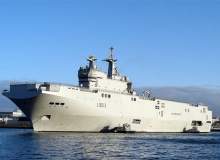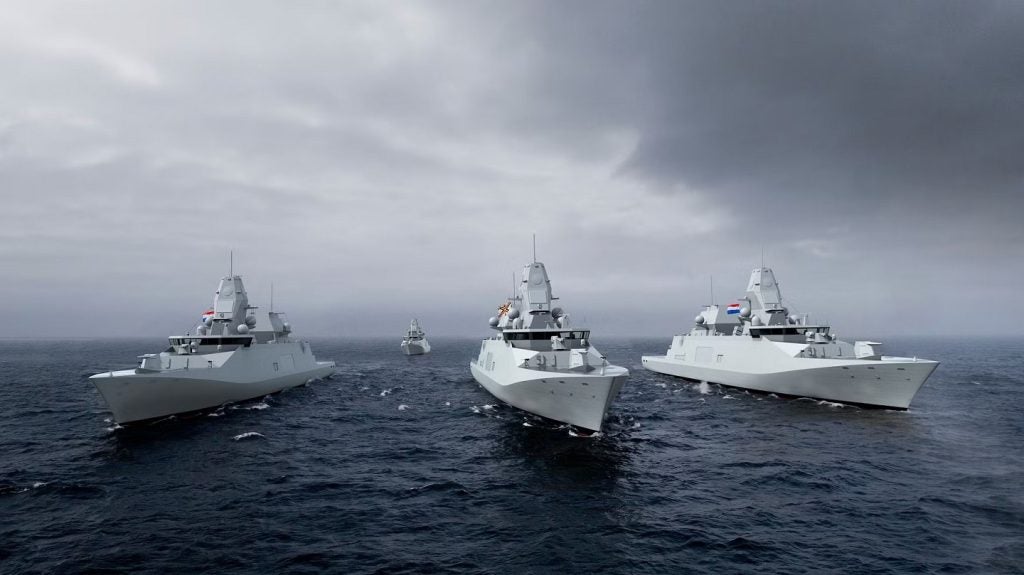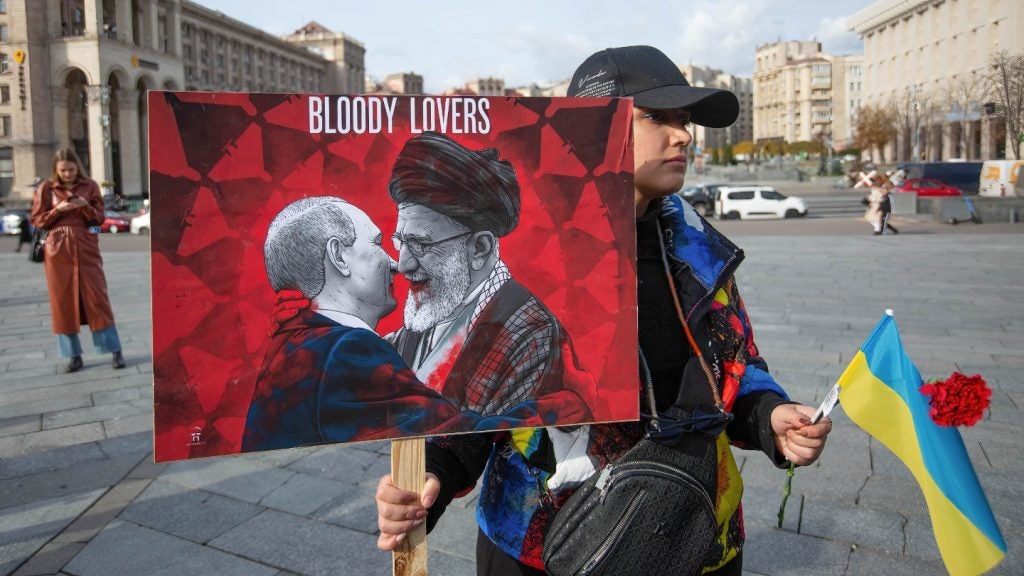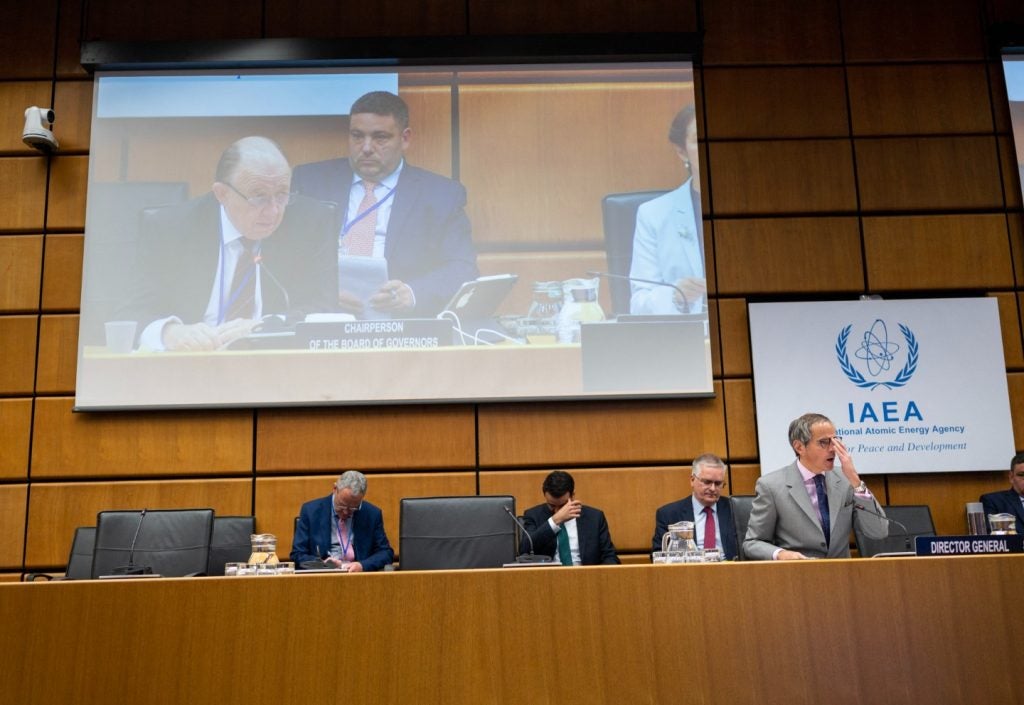
Naval-technology.com/wp-content/uploads/image-digitalinsightresearch/Archive/nri/naval/Mistral%20big.jpg” width=”431″ />
The downing of flight MH-17 over Ukraine, allegedly by pro-Russian troops armed by the Kremlin, brought to a head international calls for sanctions and an arms embargo against Russia. While the total value of current arms export deals with Russia is staggering, one project in particular is conspicuous by its sheer size, not just in value but in physical dimensions.
In December 2010, then Russian resident Dmitry Medvedev approved the purchase of two DCNS Mistral-class amphibious assault-class ships from France at a total value of €1.2bn. The first, Sevastopol, is due to be delivered in October this year, with Vladivostok expected to join the fleet in 2015. Russia then has the option to build two more domestically.
Mistral is designed to carry out interventions where there is no land or over-flight access by offering a sea base from which to deliver troops ashore or secure a beachhead to start operations. The French Navy used it extensively in humanitarian disaster relief efforts after the Haiti earthquake in 2012-2011. It can operate up to 16 helicopters and carry a total of 30 on its huge flight deck, with 40 main battle tanks and 500 fully-fitted Marines inside. For Russian operation, only minor tweaks would be necessary, such as making it compatible with Ka-52 and KS-27 helicopters.
"The Mistral class developed France’s capability, putting all the requirements to do an amphibious force landing in one vessel," says Peter Roberts, senior research fellow in sea power and maritime studies at the Royal United Service Union (RUSI) think tank.
How well do you really know your competitors?
Access the most comprehensive Company Profiles on the market, powered by GlobalData. Save hours of research. Gain competitive edge.

Thank you!
Your download email will arrive shortly
Not ready to buy yet? Download a free sample
We are confident about the unique quality of our Company Profiles. However, we want you to make the most beneficial decision for your business, so we offer a free sample that you can download by submitting the below form
By GlobalDataSee Also:
"Not only do you have a flight deck that can accommodate short take-off and landing fixed-wing aircraft like Harriers, but you can also use it for helicopters. There’s a 10,000 square foot command and control centre, which is vital for amphibious operations, a medical facility equivalent to a hospital for a town of about 25,000 people, and quarters for up to 500 troops. Not only that, but you can dock these ships down and open the back up to use landing craft to do insertion by sea."
International condemnation
When the deal was announced, alarms were raised immediately by Baltic-based NATO members. Lithuanian defence minister Rasa Jukneviciene said at the time: "It’s a mistake. This is a precedent, when an NATO and EU member sells offensive weaponry to a country whose democracy is not at a level that would make us feel calm."
For the first time in RIMPAC’s 43-year history China and India will participate, while Thailand and Russia will both be absent.
In June, deep into the Ukraine crisis, US President Barack Obama gently urged France to back down from the deal saying: "I think it would have been preferable to press the pause button."
The UK joined the protests after the downing of the Malaysian Airlines flight on 17 July, with Prime Minister David Cameron saying it would be "unthinkable" for France to go through with the order. French foreign minister Laurent Fabius hit back, accusing the UK of hypocrisy due to its harbouring of Russian oligarchs.
German Chancellor Angela Merkel trod a more cautious line, pointing out that it is legal under the current sanctions regime. However, she noted that Germany has put on hold the construction of a combat simulation training centre it is building in Russia. Japan has also thrown its hat in the ring with defence minister Itsunori Onodera specifically calling for the Mistral deal to be halted.
More recently the EU announced that it is introducing an embargo on arms sales to Russia and economic sanctions that aim to cut off Russia’s access to foreign financial markets. However, the Mistral deal remains unaffected; the EU document that sets out the terms of the sanction specifies: "The principle of non-retroactivity will apply across all targeted sectors, notably in the field of arms trade."
Russia has remained unmoved throughout and is preparing for the Mistrals to join its naval fleet.
"The difficulty for France is it faces the challenge of balancing economic interests against the political implications of going through with this deal," says Dr Henrik Heidenkamp, research fellow for defence, industries and society at RUSI.
"France is concerned with its commercial reputation in the world, not only with Russia but also with potential future customers. But the Americans, Germans and others have expressed that there is a political reputation at stake should they deliver the Mistral in October."
Struggling with the financial crisis and employment downturn that has affected much of Europe, France could argue this it is merely fulfilling a contract where half of the payment has already been made, and where Russia could claim significant compensation should Mistral not be delivered. But then France’s export policy would risk coming under international scrutiny.
"Obviously the real issue is the moral aspect," says Heidenkamp. "Are you willing to support a country in its military efforts that is behaving like Russia in the Ukrainian crisis? I don’t think there’s an argument that the Mistral will be used against NATO, but there is an argument that Russians may use Mistral in a future conflict around one of the other contested areas in Europe."
Technology transfer
Technology transfer was a key aspect of the deal for Putin, adding fuel to the argument that the deal should be cancelled as it is giving Russia access to advanced military know-how. Russian engineers are on site at the Saint Nazaire shipyard where the two Mistrals are being constructed; the Russian workshare for the first ship is around 20% and is planned to grow to 40% for the second ship,
"I don’t really buy into the argument that technology transfer is such a big issue," says Heidenkamp. "While it gives you certainly quite a significant military capability, without weapons the Mistral is basically a transport ship. The Russians could have built such a ship quite easily by themselves; it’s more a question having the shipyard capability to build."
If France were to bend to the political pressure of its NATO allies, how could it sidestep the worst of the financial hit? Robert C. O’Brien, former senior advisor to Governor Mitt Romney’s foreign policy and national security advisory team, suggested in a recent commentary for The Diplomat that the US should relieve the economic burden on France by purchasing the warships for its Navy. He even implied such a deal could be effectively free for US taxpayers as the price could come from the $8.97bn fine BNP Paribas recently agreed to pay to the US for violating sanctions against Iran.
As it stands, France could go right down to the wire and wait until the October delivery date for the first Mistral to decide whether to revoke the export licence, in the meantime keeping its fingers firmly crossed that Russia backs down from Ukraine.
The launch sends a clear message to allies and adversaries alike – Britain is back as a maritime power.
"The French Government will examine the strategic environment – how Russia has behaved, what sanctions are in place, if there is an arms embargo or not," says Heidenkamp. "Based on this assessment it will either go through with the export or not. Should the European Parliament vote in favour of an arms embargo, there is no doubt in my mind that they will accept that and the export licence will be revoked."
But while the smaller scale arms embargoes have yet to have any effect, Mistral might just be the deal-breaker.
"Putin sees Mistral as one of his gold-plated capabilities that he’s buying for the Russian Navy," says Roberts. "There are very few things that he cares about, but this is obviously one of them, so it would be an important step if the sanctions were put in place."
Follow Berenice Baker on Google+



.gif)





